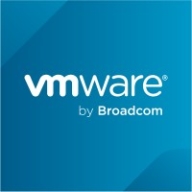

VMware Carbon Black Endpoint and Kaspersky Total Security are two prominent endpoint protection solutions. VMware Carbon Black Endpoint offers robust threat detection capabilities, making it a favored choice for security-focused organizations, while Kaspersky Total Security stands out with its comprehensive suite of features.
Features: VMware Carbon Black Endpoint is noted for its advanced threat detection and mitigation, real-time monitoring, and behavioral analytics. Kaspersky Total Security includes a secure browser, password manager, and encryption tools, delivering a comprehensive suite of protective features.
Room for Improvement: Users suggest improving ease of use and reporting functionalities for VMware Carbon Black Endpoint. For Kaspersky Total Security, speeding up malware detection and reducing system performance impact are recommended. Both products focus on optimizing user experience in performance and usability.
Ease of Deployment and Customer Service: VMware Carbon Black Endpoint is praised for its straightforward deployment processes and responsive customer support. Kaspersky Total Security is noted for ease of installation but is seen as less responsive in customer service compared to VMware.
Pricing and ROI: VMware Carbon Black Endpoint is more expensive but offers a high ROI due to its advanced security features. Kaspersky Total Security is more affordable and delivers good ROI with its extensive feature set, providing a cost-effective security solution.
Kaspersky Total Security provides a good return on investment by improving data security and reducing costs by sixty percent with its robust security features.
I rate them an eight out of ten for their support in deploying Total Security.
We have not experienced any issues with Kaspersky Total Security as we manage their entire IT infrastructure.
The only area for improvement is the price, which is slightly high.
The system can be demanding on resources, making devices busy when running the client application.
The pricing for Kaspersky Total Security is quite affordable.
The solution offers endpoint protection by scanning and alerting to viruses in the organization without physical inspection, increasing efficiency by stopping unwanted applications running in the background.
Kaspersky Total Security is a lightweight solution that does not slow down Windows.
| Product | Market Share (%) |
|---|---|
| Kaspersky Total Security | 1.3% |
| VMware Carbon Black Endpoint | 1.8% |
| Other | 96.9% |


| Company Size | Count |
|---|---|
| Small Business | 17 |
| Midsize Enterprise | 1 |
| Large Enterprise | 6 |
| Company Size | Count |
|---|---|
| Small Business | 31 |
| Midsize Enterprise | 9 |
| Large Enterprise | 30 |
Kaspersky Total Security provides robust antivirus and malware protection, comprehensive security for banking systems, infrastructure, endpoints, and personal devices including antivirus, firewall, and VPN services.
Kaspersky Total Security is a multi-faceted solution featuring antivirus, firewall, VPN services, and protection for personal devices, company laptops, and critical data. It is utilized for patching, managing vulnerabilities, and safeguarding against threats from USB drives and harmful websites. With features like anti-spam for Microsoft Exchange Server and secure web browser modes for online banking, Kaspersky offers comprehensive protection for personal and business use. Additionally, its combination of machine learning, AI, and reliable intrusion prevention makes it a preferred choice for many users.
What are the most important features of Kaspersky Total Security?Kaspersky Total Security is implemented across diverse industries to fortify banking systems, infrastructure, and endpoints. It protects personal devices, company laptops, and sensitive data, ensuring a safe digital environment for users. Industries rely on its anti-spam features for secure communication and its secure browser modes for safe online banking. Kaspersky's superior intrusion prevention and automated threat recognition powered by AI and machine learning enhance industry-specific cybersecurity measures.
VMware Carbon Black Endpoint enhances endpoint security with its robust EDR, threat detection, and live response features. The cloud-based architecture supports remote management and easy setup while behavioral monitoring and dynamic grouping minimize security risks.
VMware Carbon Black Endpoint is designed for those seeking comprehensive endpoint protection. With its cloud-based deployment, organizations experience streamlined remote control and simplified rollout processes. Its behavioral monitoring, incident response capabilities, and firewall integration deliver advanced security measures. Although it addresses many security challenges, areas like manual alert management, on-demand scanning, and integration with systems like AlienVault USM require refinement. Improved UI, EDR components, and flexible pricing models would enhance user satisfaction. On-premise deployment infrastructure and compatibility issues with some operating systems need attention. Enhanced reporting, container security, and multi-tenancy support are also essential for fulfilling industry needs. AI-driven analysis and threat isolation empower companies by fostering proactive management.
What are the key features of VMware Carbon Black Endpoint?
What benefits should users look for when evaluating VMware Carbon Black Endpoint?
VMware Carbon Black Endpoint finds extensive application in industries focused on stringent security requirements. Managed security service providers leverage its capabilities to deliver comprehensive protection to multiple clients worldwide. Organizations use it primarily for antivirus protection and incident management, integrating it with their existing security frameworks to strengthen endpoint visibility and real-time threat prevention. Its advanced detection and application control features make it a preferred choice in industries that prioritize robust security measures. However, it requires improvements in terms of system compatibility and customization flexibility to better serve diverse industry environments.
We monitor all Endpoint Protection Platform (EPP) reviews to prevent fraudulent reviews and keep review quality high. We do not post reviews by company employees or direct competitors. We validate each review for authenticity via cross-reference with LinkedIn, and personal follow-up with the reviewer when necessary.